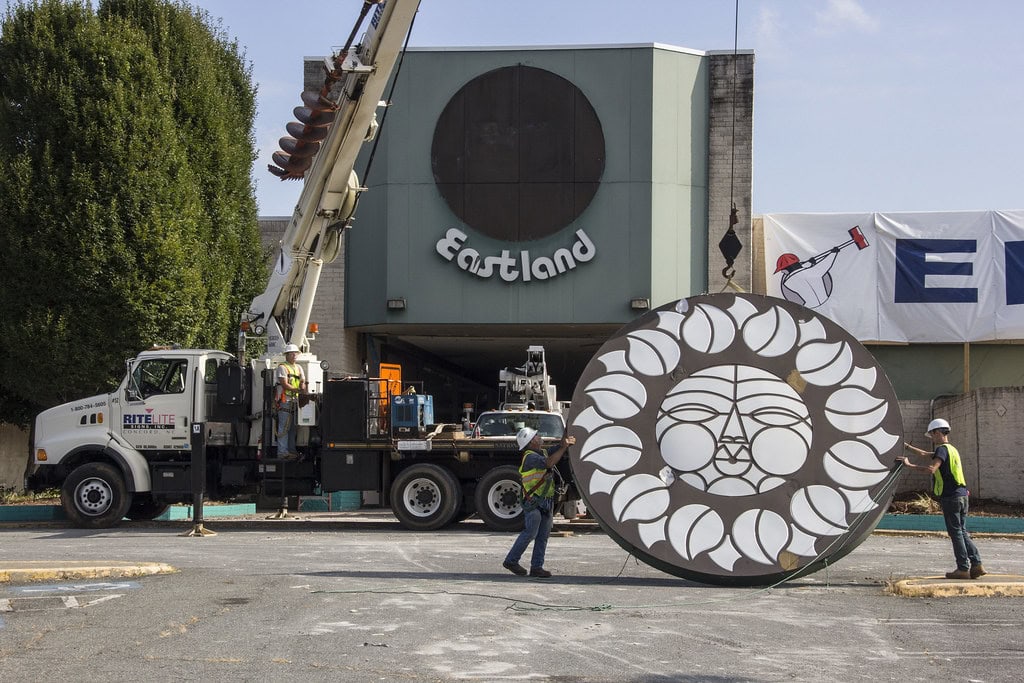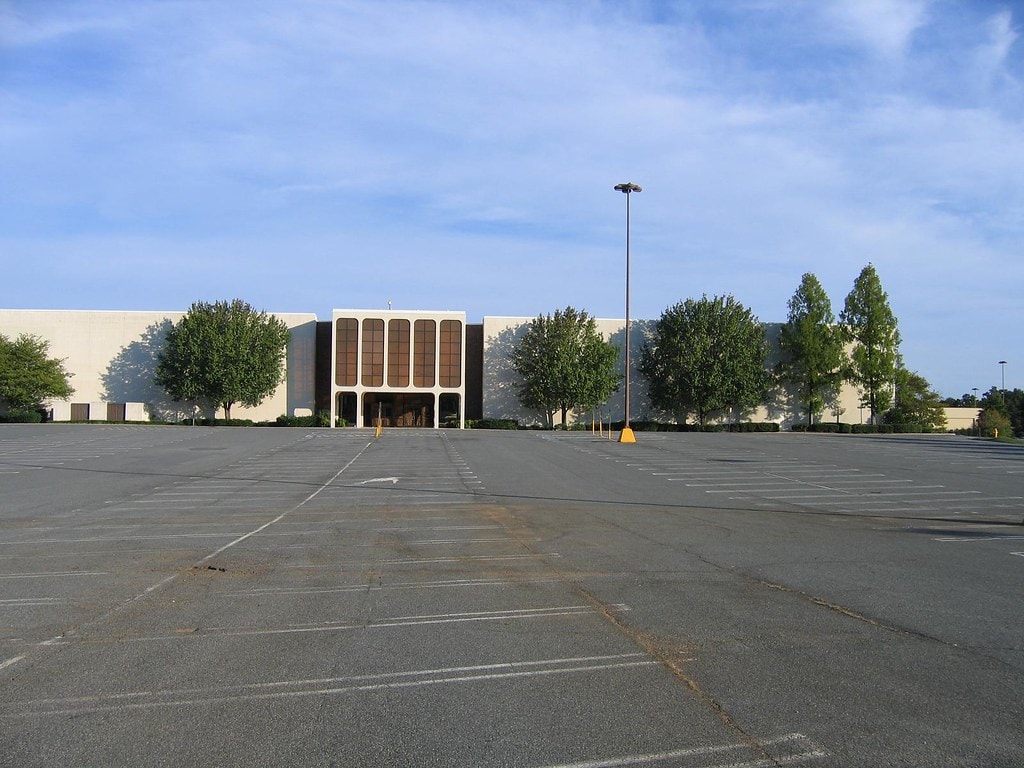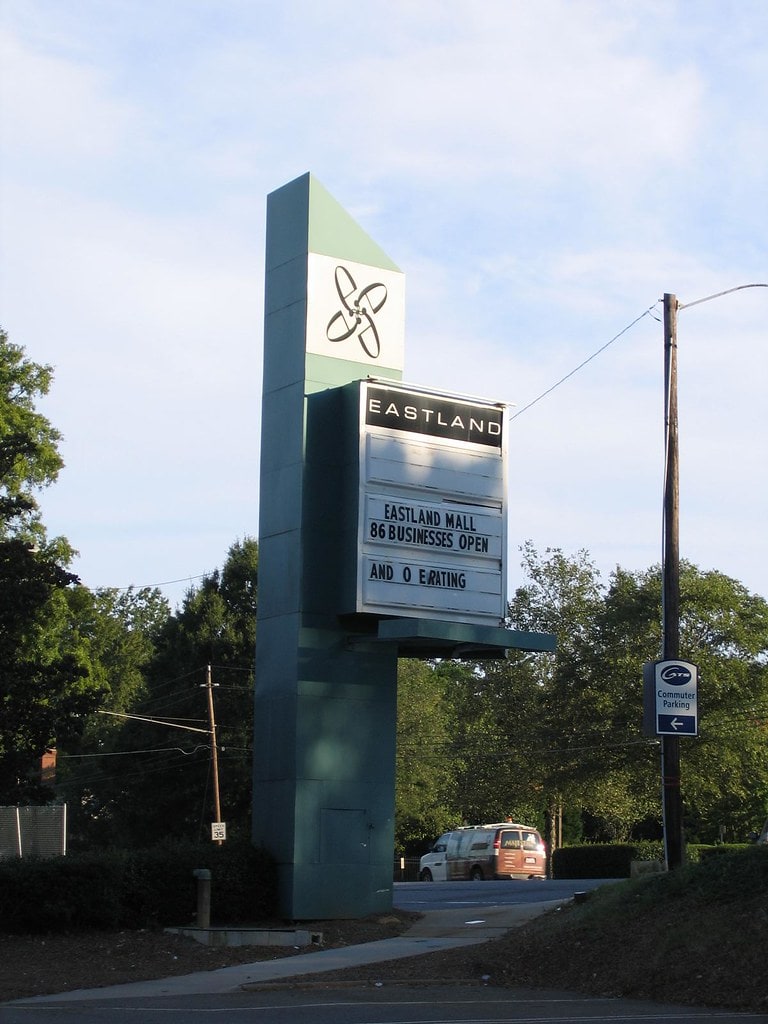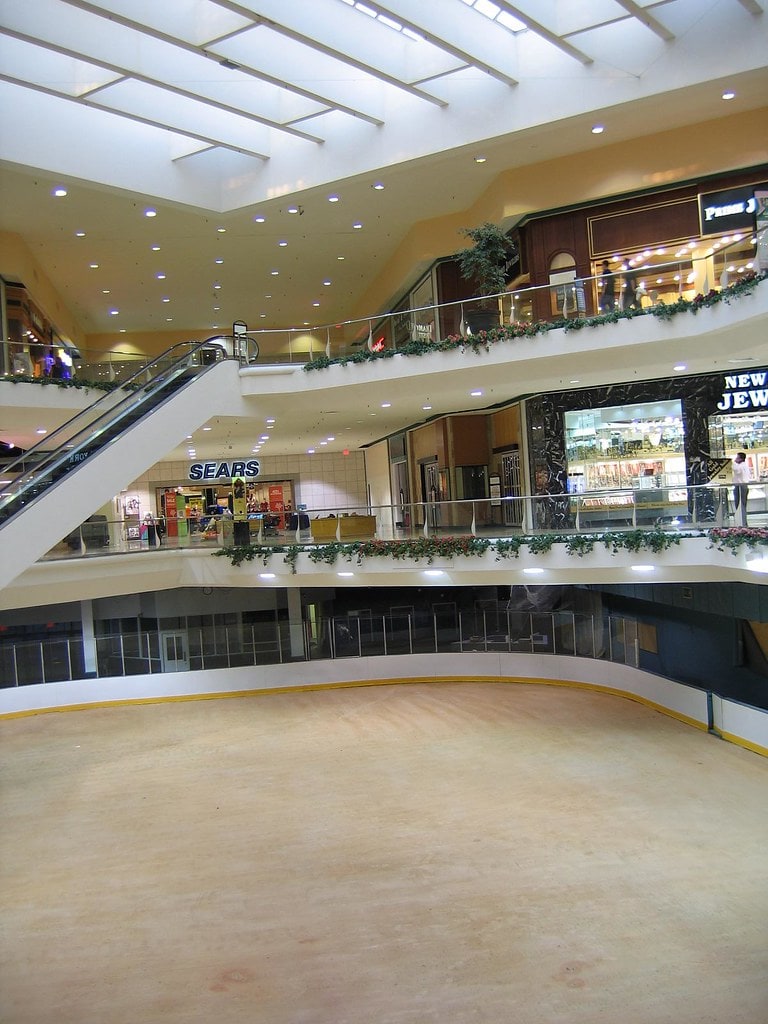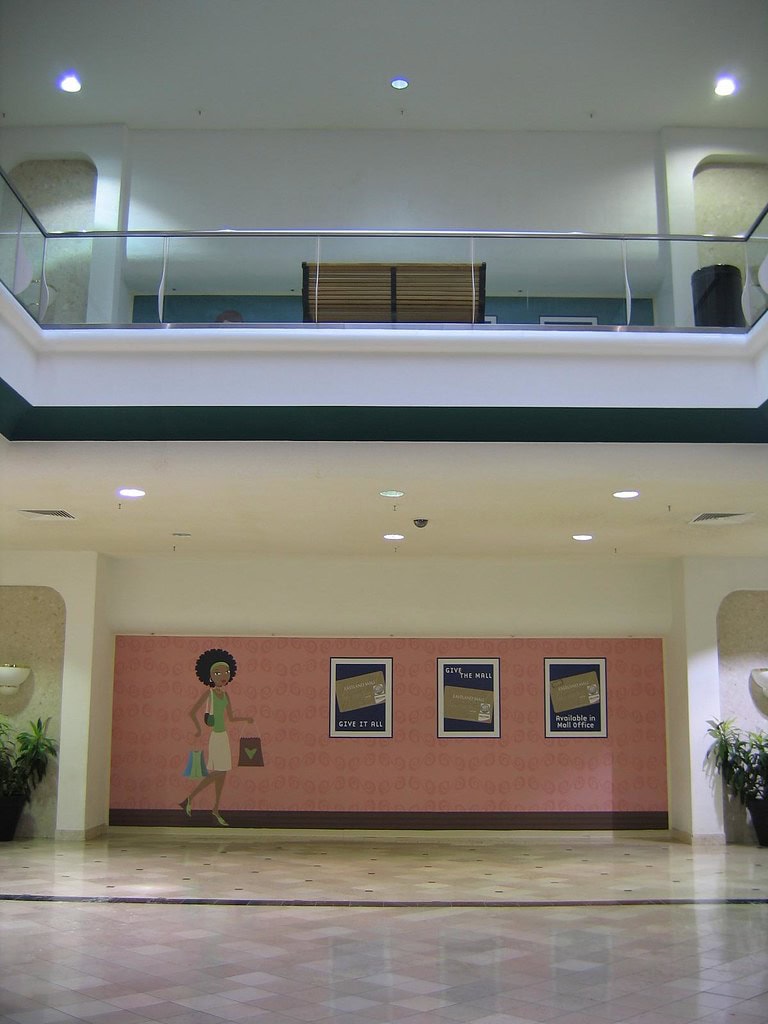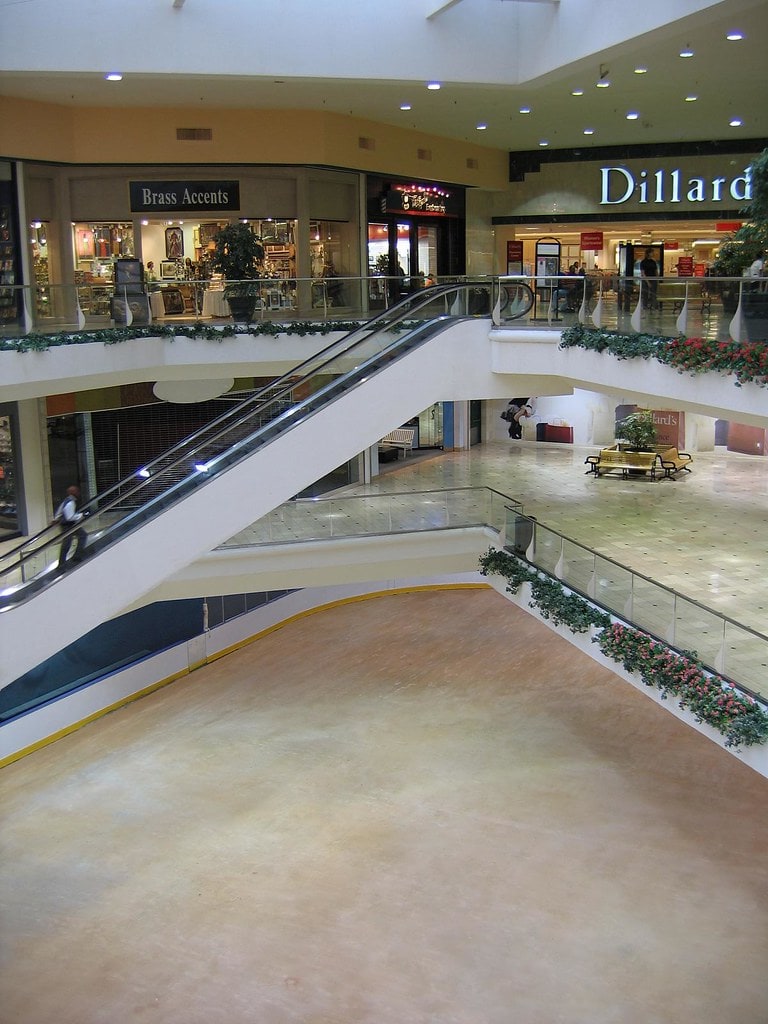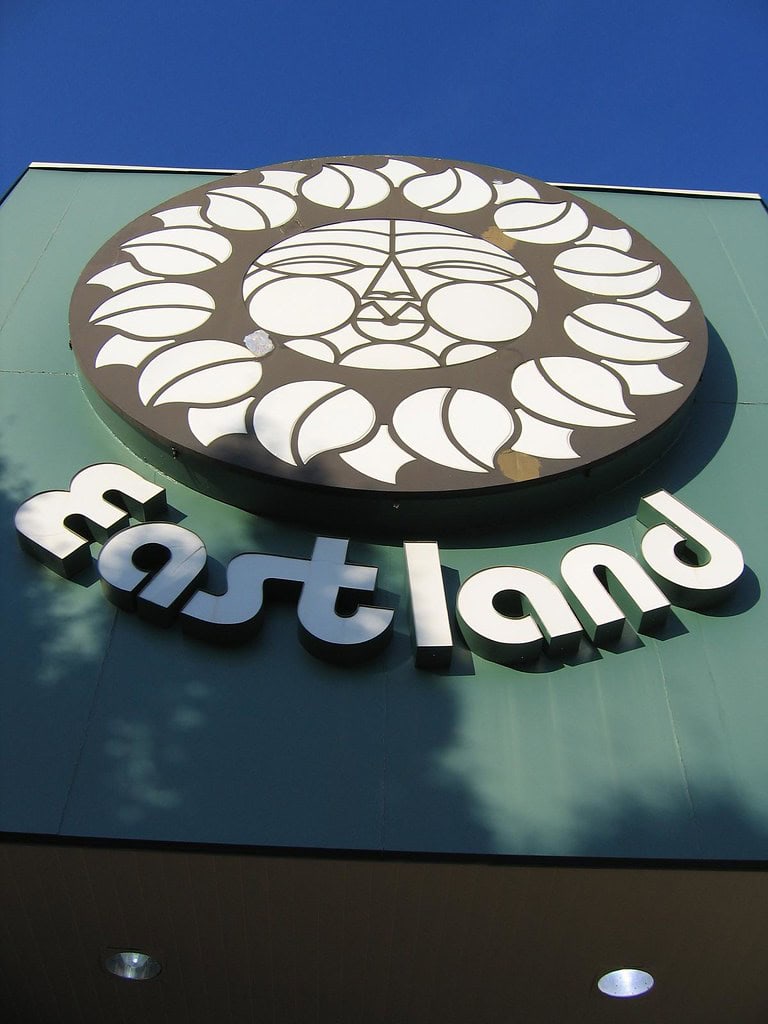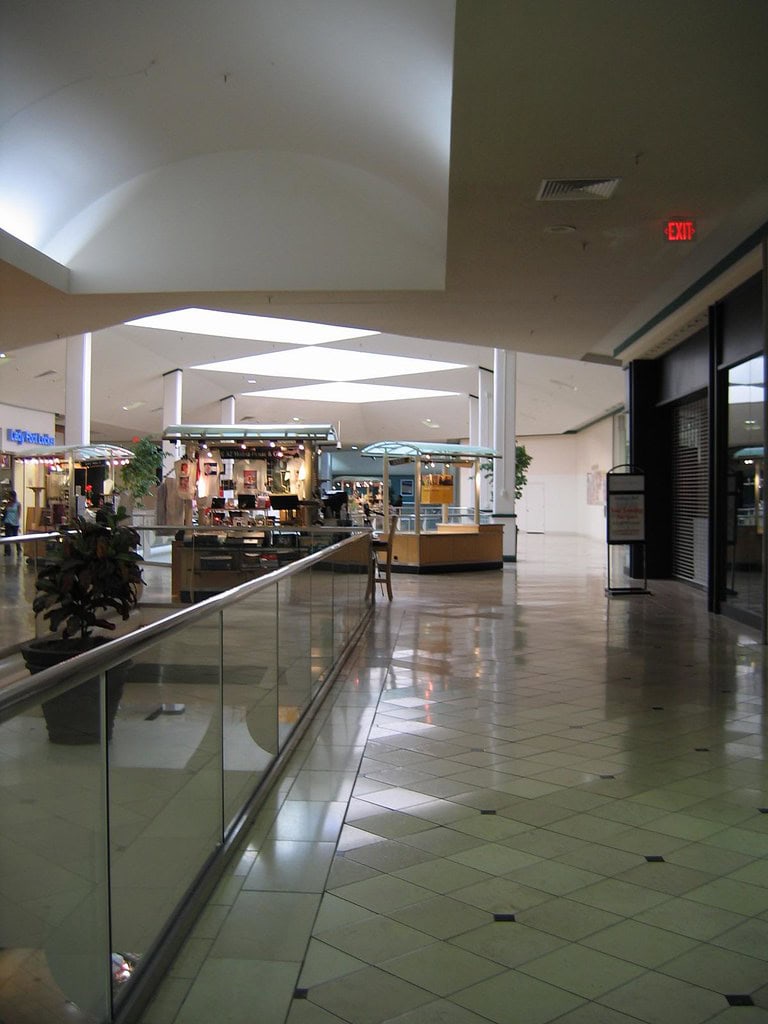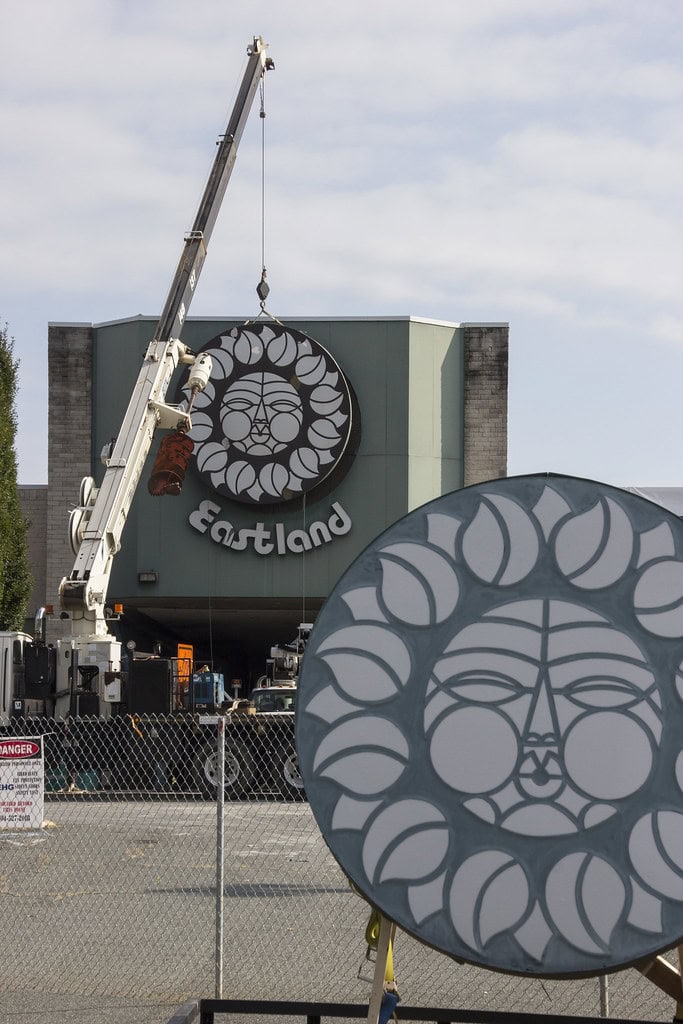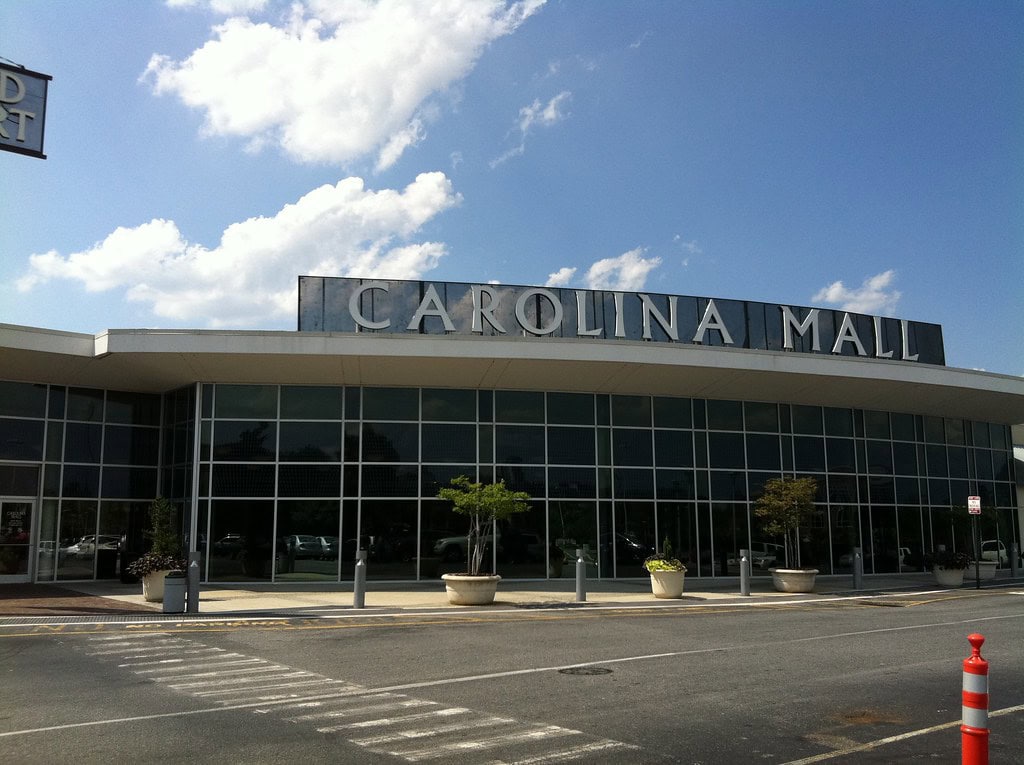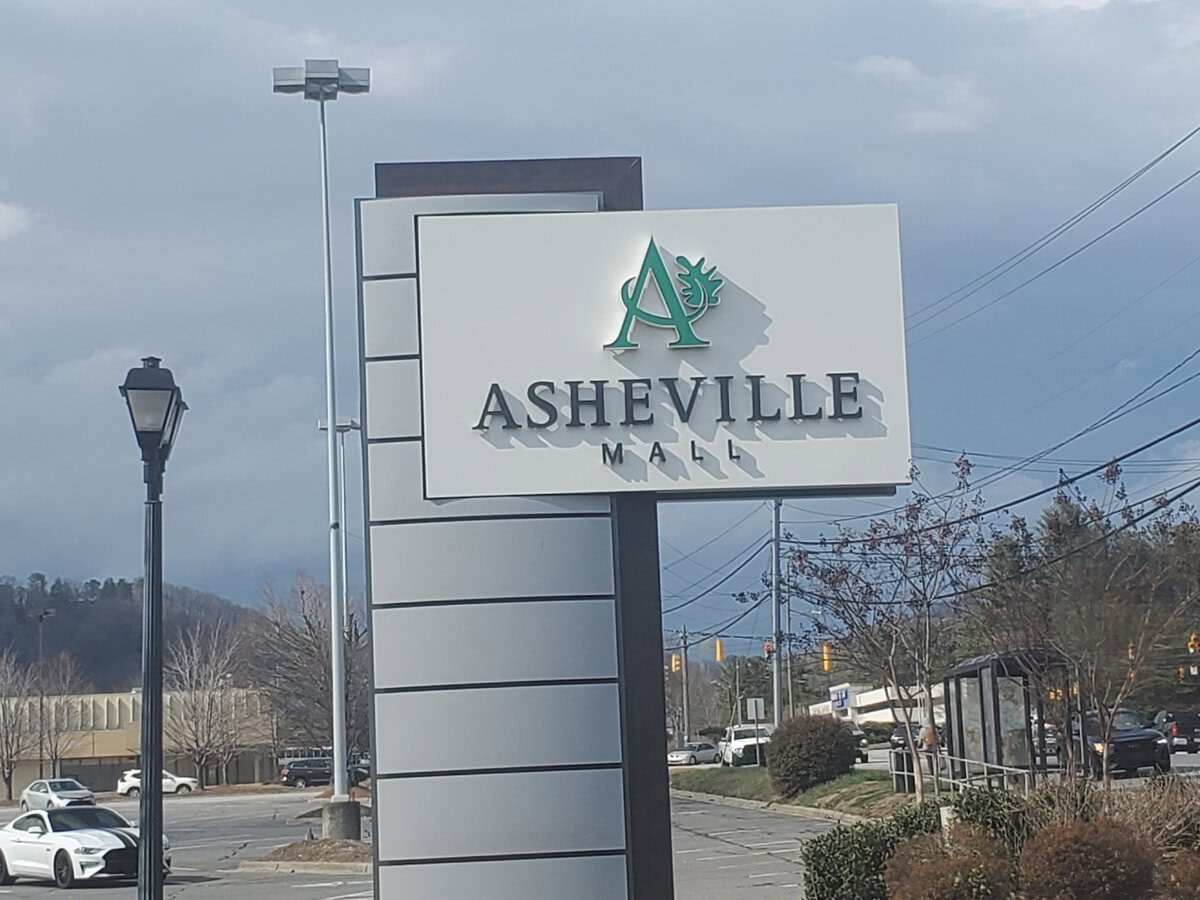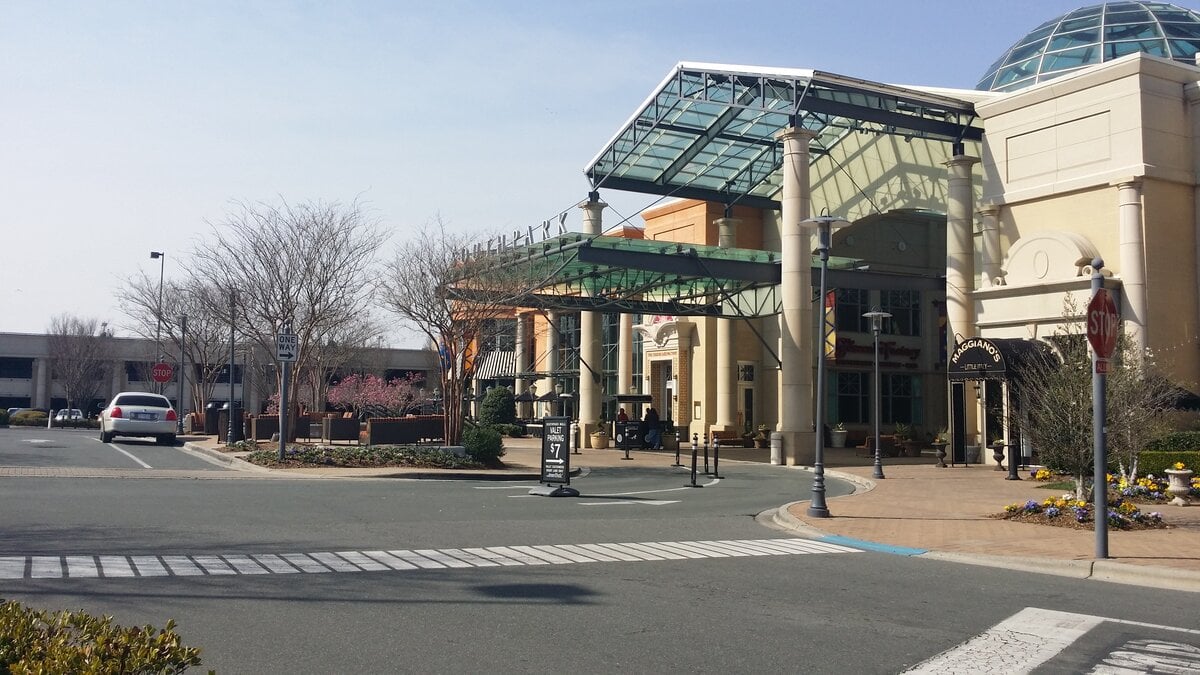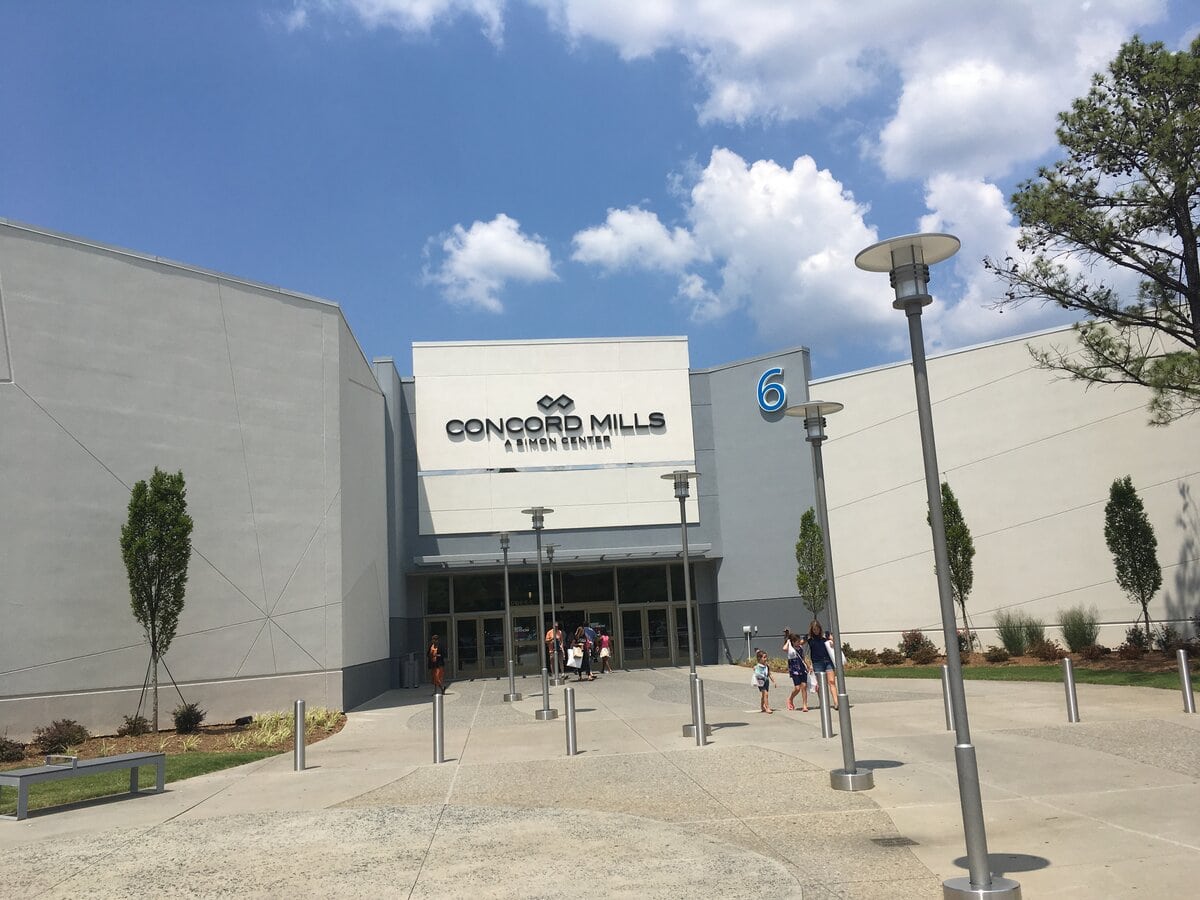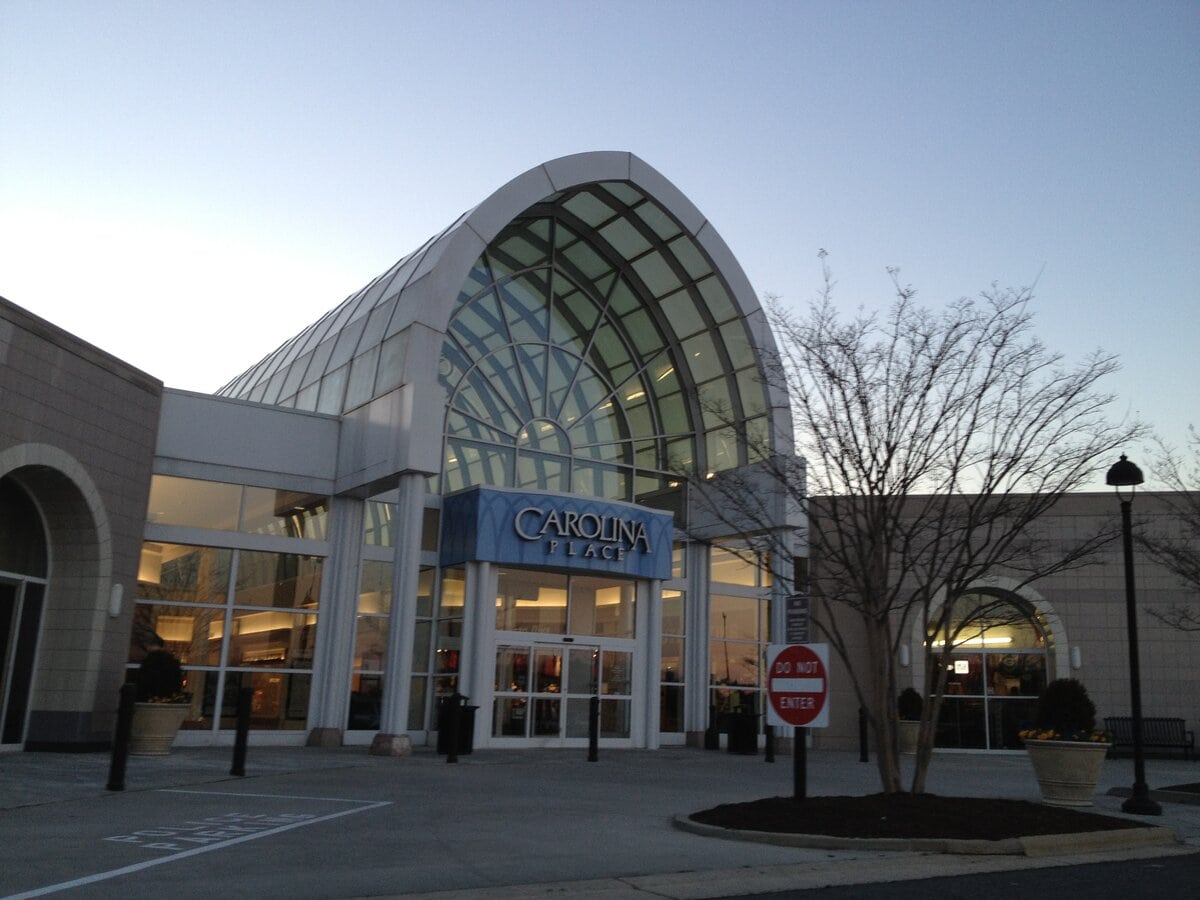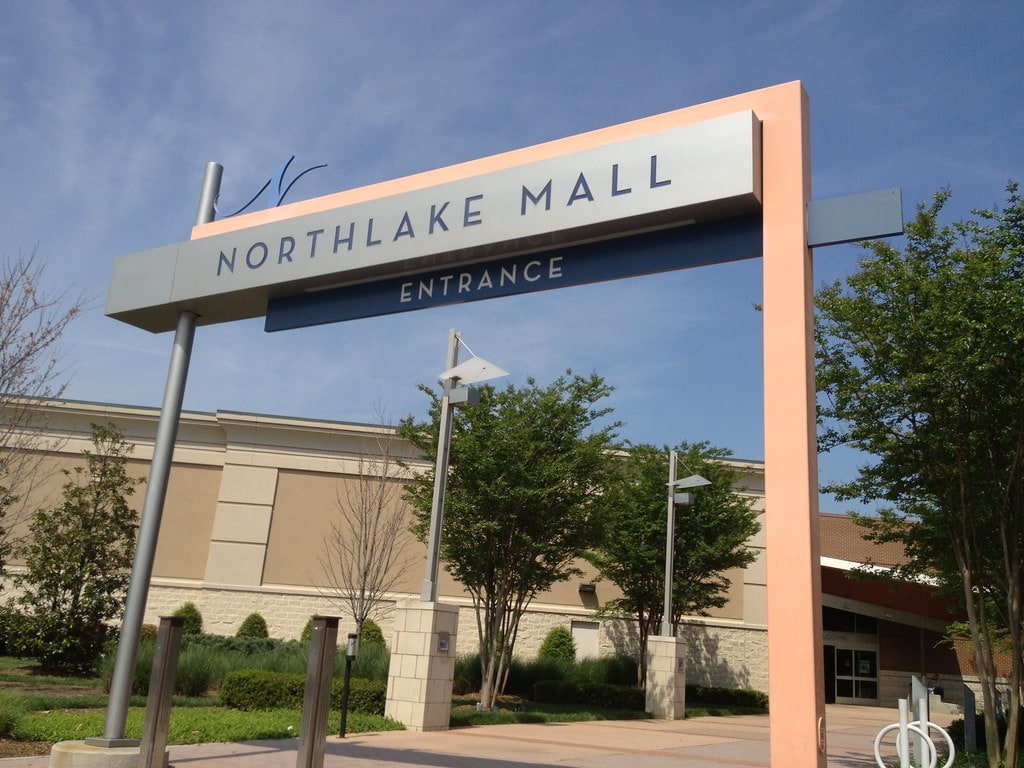Eastland Mall in Charlotte, NC, opens to crowds
Eastland Mall opened on July 30, 1975, on Central Ave, built by Faison Enterprises. It spanned over one million square feet and quickly became one of the largest malls in North Carolina.
The original anchors were Belk, JCPenney, and Ivey's, set across a two-level plan. A Sears store was added later, but opening day focused on the first three retailers and a range of smaller national chains.
The centerpiece was the Ice Capades Chalet rink in the middle of the concourse. A multi-screen cinema also opened, and a new concept food court drew crowds as the first of its kind on the East Coast.
A Harris Teeter stood nearby in the outparcel convenience center, serving neighborhoods around Central Ave.
New anchors arrive and upgrades reshuffle space
When Sears opened at Eastland Mall in 1979, the new anchor drew crowds into a previously quiet corner of the property that had been vacant since the mall's opening day.
Shoppers walked into two full levels of appliances, tools, and housewares, a contrast to the fashion and home goods offered by the other anchors.
The four department stores now formed a loop that encouraged people to circulate across the mall instead of lingering at one end.
The concourses evolved in quieter ways. Athletic footwear stores expanded into larger spaces to keep up with growing demand.
Music retailers piled in cassettes and compact discs, reshaping their shelves.
Jewelers utilized corner locations where the light reflected off their displays, creating a visually appealing effect.
Then in 1986, Miller & Rhoads shut its boutique, one of the mall's first vacancies, even as national chains expanded around it.
By the early 1990s, another handoff reshaped Eastland: Ivey's became Dillard's. The replacement store claimed the old box, expanding its reach and refreshing the shelves.
At the same time, upgrades appeared across the concourses, from the tile underfoot to the gleaming lights overhead to the escalators being brought up to date.
The rink at the center court remained unchanged, still the mall's trademark.
Late 1990s pressures and a change in control
By the late 1990s, Eastland Mall was facing new challenges as its surroundings underwent changes.
In 1997, Coffee Beanery filed suit against the property's ownership, claiming that crime in the area had driven down sales.
The lawsuit underscored concerns among tenants about the mall's ability to hold its customer base.
A year later, Glimcher Realty Trust purchased the mall for $54 million. Under new ownership, efforts focused on stabilizing tenancy rather than changing the format.
In 2000, Foot Locker doubled its sales floor, Waves Music expanded its store, and a dozen kiosks were placed through the concourses.
These moves filled gaps and added activity but left the overall structure unchanged.
Charlotte leaders also began to plan for the mall's future.
In 2001, the city commissioned a study to review possible uses for the site, indicating that Eastland was no longer considered a stable long-term investment.
By 2003, Glimcher consolidated its control with a $4.75 million buyout of its partners.
That same year, the creation of CharlotteEAST tied the mall's outlook to broader community development efforts.
Anchor exits, split boxes, and a thinning roster
The anchor lineup began to unravel in the early 2000s. JCPenney closed its Eastland store in 2002, having operated in an outlet-style format for years.
By 2004, the upper level of the space reopened as Burlington Coat Factory, while the lower level was subdivided for Fred's and Prime Time, a local discount operator.
Other changes quickly followed.
In 2005, Dillard's converted its store into a clearance outlet, operating from a single level and drawing bargain shoppers instead of regular department store traffic.
That same year, Glimcher attempted to sell the mall, but no buyer emerged.
The outparcels also shifted. On June 26, 2006, Harris Teeter closed its store, marking the end of more than 30 years of grocery service on the site.
In February 2007, Belk left the property, removing one of the last original anchors.
Meanwhile, attempts were made to revive the old theater space.
In 2007, operators introduced first-run films after a period focused on niche screenings, but the effort had little impact on restoring steady traffic.
The mall's roster was visibly thinning, and shuttered spaces became more common.
Recommendations to raze, recession stress, and closure
In March 2007, the Urban Land Institute presented its advisory for Eastland Mall, recommending demolition and replacement with a mixed-use program.
The report marked the first formal suggestion to clear the property rather than attempt further retail redevelopment.
At the same time, anchor losses mounted. In 2008, multiple tenants departed, including Fred's, Prime Time, and several Limited Brands stores.
Dillard's, which had been operating as a clearance center, shut its doors in October, followed soon after by the theater.
By mid-2008, Glimcher Realty Trust announced it would no longer fund losses tied to the mall and sought receivership.
The financial strain deepened in February 2009 when Sears confirmed it would close by May 31, ending Eastland's last major anchor presence.
After that, the rink floor was repurposed as a soccer field, an attempt to fill empty space with community use.
On April 16, 2010, tenants were told to vacate by June 30 due to foreclosure.
A sale to Boxer Property followed on June 28 for approximately $2.2 million, but reopening plans never materialized.
Eastland Mall shut its doors completely on June 30, 2010, ending thirty-five years of operation.
City steps in, demolition clears the site, and schools return
The City of Charlotte purchased Eastland Mall on August 31, 2012, acquiring roughly 80 acres and all remaining outparcels for $13.2 million.
By then, the building had sat dark for more than two years. Developers and city officials agreed the structure could not be reused.
In May 2013, the City Council approved the demolition, budgeting about $800,000 for the work.
Crews began tearing down the property that October, starting with the former Burlington Coat Factory.
By early 2014, the once vast shopping center was reduced to cleared land.
Redevelopment ideas began taking shape soon after. In 2016, the city sold 11.4 acres to Charlotte-Mecklenburg Schools for $650,000.
The sale brought classrooms back to a site that had once been filled with stores.
Transit plans also entered the discussion, with designs identifying part of the old parking fields as a future community transit hub.
For a brief period, Charlotte FC considered building its training facility on the land before shifting to another location.
The remainder of the property stayed in the city's hands, awaiting a larger development plan.
Eastland Yards breaks ground and delivers first homes
Charlotte selected Crosland Southeast as the master developer for the redevelopment of the former Eastland Mall site.
By August 2022, work began on the first phase of Eastland Yards, covering about 39 acres.
Plans included 155 single-family and townhomes, 280 multifamily units, 17,500 square feet of office and retail, and a Mecklenburg County park on nearly 5 acres.
In June 2023, two proposals were unveiled for the remaining 30 acres. One envisioned a 115,000-square-foot indoor sports complex with an outdoor soccer field and trail.
The other focused on outdoor fields, paired with a 20,000-square-foot esports and event center.
City leaders debated which program would best fit the site's long-term vision.
On September 9, 2024, the Charlotte City Council approved an additional $11.3 million for Eastland Yards, raising the city's total commitment to about $41 million.
Two months later, on November 20, 2024, a ribbon-cutting cutting celebrated the completion of Evoke Living at Eastland Yards, marking the first residential phase delivered on the property.
The milestone was viewed as the first tangible outcome of the city's long redevelopment effort.
Parks, bids, and public facilities move forward in 2024-2025
As redevelopment advanced, Mecklenburg County earmarked $12.35 million in its fiscal 2025 budget for Eastland Park.
Renderings released in December 2024 showed a mix of open green space, skate facilities, and trails.
Design work was set to continue into early 2025. Procurement followed soon after.
By July, the project was still listed as being in the bidding stage, with construction planned to begin in the fall of 2025 and finish in the spring of 2027.
Other civic projects also took shape.
On January 27, 2025, Mecklenburg County confirmed that it had budgeted $3.4 million to acquire land for a new library branch near Eastland Yards.
Meanwhile, plans for a 29-acre area called The Complex were introduced, promising sports, tech, arts, and entertainment venues.
Together, these moves showed how public facilities were being layered into the redevelopment, keeping community use at the center of the project's future.

